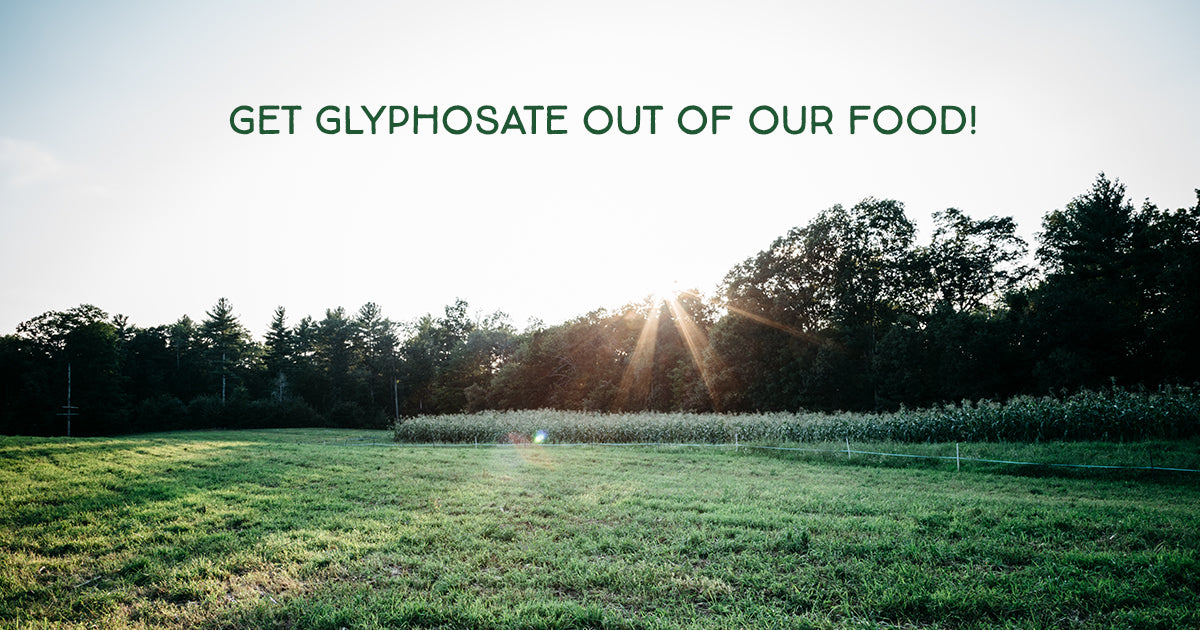Why Farming Needs to Radically Change Now

MegaFood | May 2022
How Does Agriculture Affect Climate Change?
Climate change has a significant impact on food production systems around the world, and certain methods of farming have contributed to climate change. According to the Organization for Economic Co-operation and Development (OECD), agriculture contributes up to 31% of greenhouse gas emissions that cause climate change through emissions from soils, fertilizers, manure and urine from grazing animals as well as land-use changes.
The Impacts of Climate Change on Agriculture.
Climate change brings with it extreme weather conditions, variations in water availability and quality and disruptions to harvests and supply lines, all of which impact access to food.
The increase in greenhouse gases in our atmosphere has the potential to create serious negative effects on food production and agricultural systems. As carbon dioxide increases in our atmosphere and soil sequesters carbon, planted crops are affected as a result.
Warmer temperatures, wetter climates and increased carbon dioxide levels can also create conditions that encourage pests, weeds and fungi to thrive. This is also to the detriment of crops, which may not have previously been exposed to such elements and will be susceptible.
How Changes to the Farming Industry Can Help the Climate
One way the farming industry can have a positive impact on changing climate is through regenerative agricultural practices. Regenerative agriculture involves a number of farming methods that help contribute to the goal of improving soil quality and, as a result, counteracting the effects of climate change.
By using regenerative agriculture methods such as rotational grazing, cover cropping, mixed cropping and crop rotation, farmers are able to help improve the quality and nutrient balance of their soil. The healthier the soil, the more effective its ability to absorb the damaging carbons from the atmosphere which are contributing to global climate change.
How Sustainable Farming Practices Can Impact Health
As the world’s population continues to rise, so too does its demand for food. Because human and animal life depends on plant-based agriculture for so many of the nutrients crucial for growth and development, food production needs to continue to increase to meet demand. Some experts believe food production needs to grow 60 to 100 percent – and that’s without factoring in food waste and current trends in population growth and food requirements.
But the answer doesn’t appear to be as simple as “planting more crops.” Climate change will bring more extreme conditions unfavorable for agricultural production, so sustainable measures are the key. Less reliance on chemical fertilizers and pesticides, as well as regenerative agriculture methods, help to reduce erosion (which removes nutrients from the earth), improve soil health, resilience and pest control.
The better the soil’s health, the more water it can hold and, as a result, the more nutrients crops can absorb. When microbes in the soil are nourishing plants, there’s less need for synthetic fertilizers, which makes for more nutrient-dense foods. This has a flow-on effect for public health, because the production of food and food-based supplements see an increased nutritional value.
What MegaFood is Doing to Help
MegaFood uses hundreds of thousands of pounds of produce from its trusted farm partners each year to manufacture premium supplements. Healthy soil equals healthy ingredients, which is why MegaFood is so committed to regenerative agriculture.
Sustainable farming practices offer the major benefit of helping to reverse the damaging effects of climate change on food production. By improving soil health with the use of regenerative agricultural methods, benefits like increased nutrient density, resilient and climate-resistant crops and higher-quality crop yields mean the world’s population can enjoy access to better and healthier foods and supplements.



Leave a comment
This site is protected by hCaptcha and the hCaptcha Privacy Policy and Terms of Service apply.